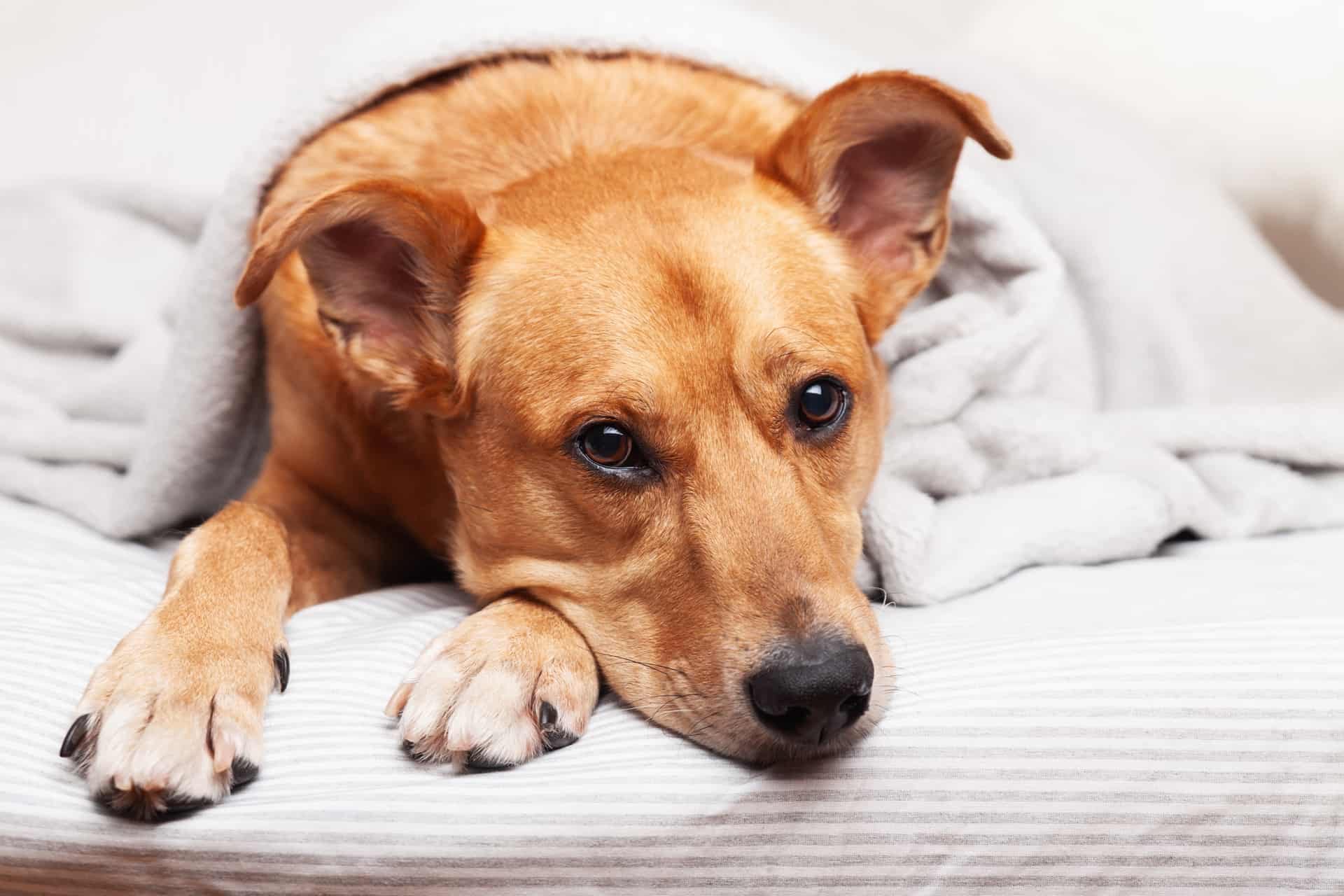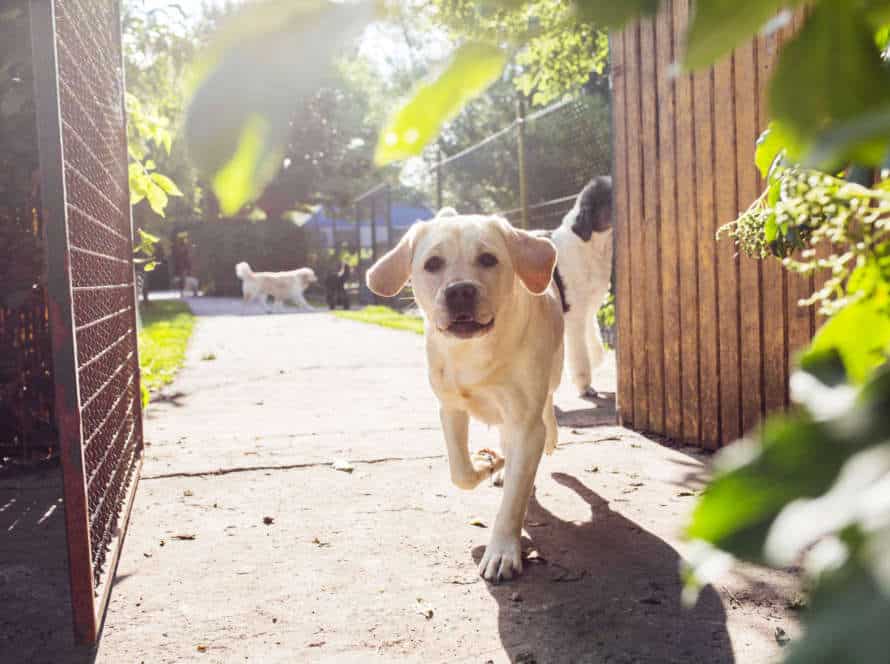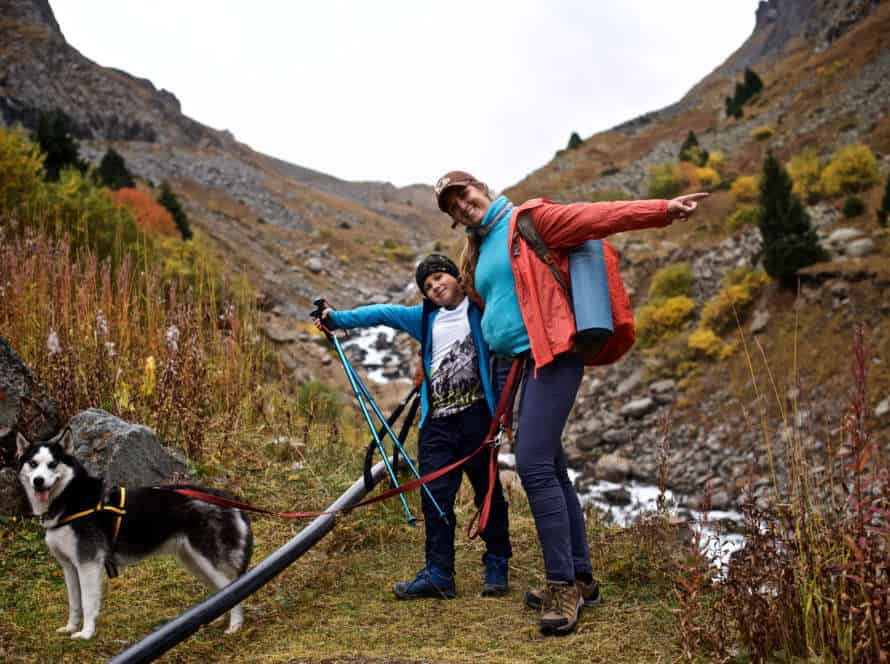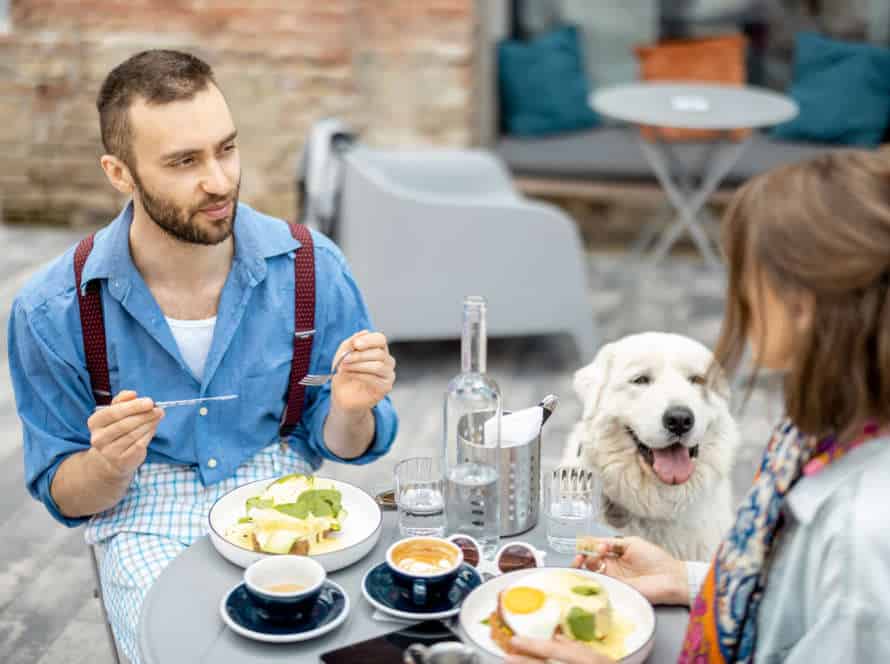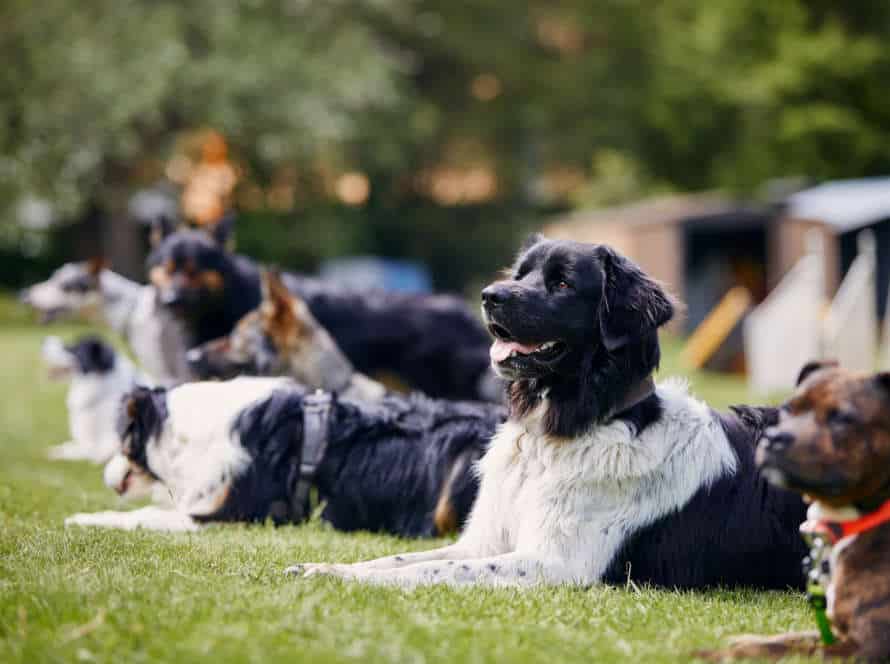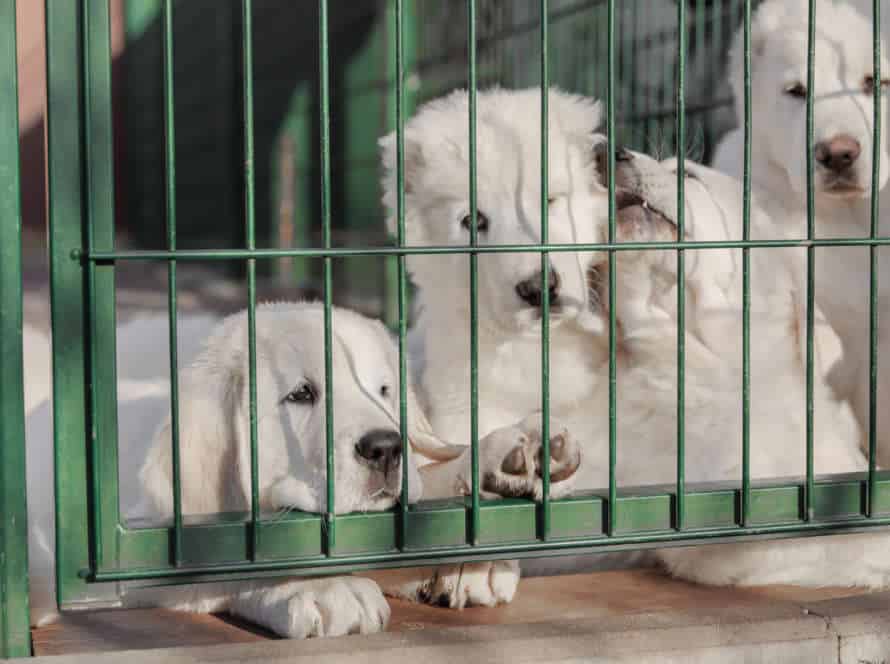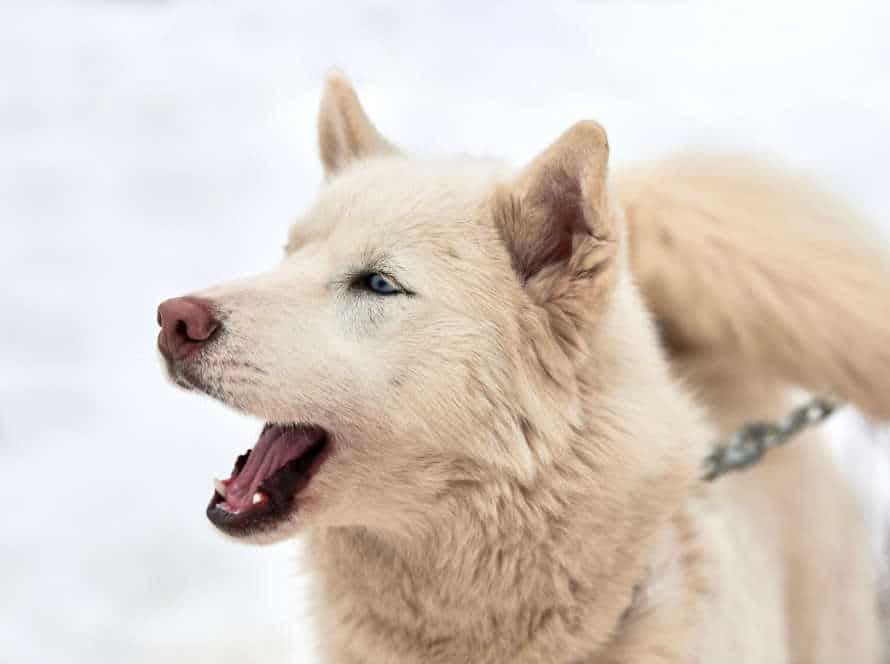Causes of Jealousy in Dogs
Jealousy in dogs is often seen. It may show in aggressive or destructive behavior, or other disturbances. To tackle the problem, it’s important to consider why it’s happening. Reasons may be changes in home, a new pet or family member, or shifts in routine. Let’s take a deeper look at these sources.
Lack of Attention/Time
Jealousy in dogs can come from various causes, such as a lack of attention or time from its owner. Dogs are social creatures and need companionship, so it is important for owners to give them enough attention and time.
Some signs that your dog may be jealous due to lack of attention/time are:
- Aggressive behavior towards people/pets which get attention
- Trying to interrupt activities that take attention away
- Excessive whining or barking when their owners leave
- Destructive behavior when alone
As a pet parent, it is essential to spend quality time with your pup, give it mental and physical stimulation, and make a routine for it. Getting professional help from a dog trainer can also be helpful in addressing jealousy in dogs.
Pro-tip: Every dog is different, so it is important to address jealousy problems with patience and consistency. With the right attitude, you can have a great relationship with your furry friend.
New family member or pet in the house
Dogs are renowned for their loyalty and love. However, when a new family member or pet enters the home, jealousy can arise. It’s essential to understand why. Here are some common triggers:
- Lack of attention. Dogs thrive on affection from their people. If they feel neglected, they may get jealous of anyone receiving attention.
- Change in routine. Dogs like routine and can get anxious when it’s disrupted. Introducing a new family member or pet can be a big change, resulting in jealousy.
- Territorial behavior. Dogs view their family and home as their possessions. They may feel jealous when they think their territory or family is being threatened.
It’s important to address jealousy early. This can stop aggressive or destructive behavior. Provide extra attention and training to ease jealousy and create a harmonious family unit.
Change in the owner’s schedule
Sudden shifts in an owner’s schedule can make dogs jealous, leading to behavioral issues, stress, and anxiety. Dogs like routine, so changes to their owners’ schedules can cause them to feel abandoned, frustrated, and insecure.
Common triggers of jealousy include:
- -Longer working hours or a new job
- -Frequent trips away or vacations
- -A newborn baby or another pet in the family
- -Changes to the owner’s relationship
- -The death or separation of a family member or friend
It’s important to recognize these changes and help the dog adjust. This could mean sticking to a routine, giving them plenty of mental and physical stimulation, and maybe seeking professional help.
Reinforce behavior
Reinforcement is a key way to tackle jealousy in your pup. To start, it’s important to figure out why they feel jealous. Here are some tips to reinforce good behavior:
- Give rewards for good behavior. If your furry friend behaves well while around other dogs or people, give them treats, praise, or playtime.
- Avoid punishing. Don’t punish them for jealous behavior, as this can make it worse. Instead, reward desired behavior.
- Train them. Teach basics like ‘sit’, ‘stay’, and ‘heel’. Doing this helps to refocus their attention and better manage their behavior.
- Socialize them. Introduce your pup to other canines and people. This can help decrease jealous behavior. Expose them to different environments and situations gradually, so they learn social skills.
By reinforcing their positive behavior, you can help your pup be emotionally healthier and happier.
Favoring one dog over another
Favouring one pup over its pal can cause jealousy. This can appear in different forms. For example, a pup may become possessive of its toys, food, or attention from their owners. This can result in growling, snapping, or even aggression towards the favoured pup. Additionally, the less favoured pup may become withdrawn or anxious.
To prevent jealousy and reduce the chance of behavioural issues:
- Give equal attention, time, and resources to each pup without prejudice.
- Train them to share resources and show them good behaviour is rewarded.
- Observe their interactions and separate them if needed to stop conflict.
By being fair to each pup and showing them love and care, you can create a peaceful and loving relationship between them.
Reinforcing negative behaviors
Reinforcing bad conduct can cause jealousy in dogs. Pups are social and require love and care from their owners. Unintentionally encouraging negative actions like jealousy can cause behavior issues. These include aggression, anxiety, and ruinous behavior. It could also result in too much yapping and whining.
Owners must acknowledge and address these negative behaviors before they become a habit. To do this, avoid reinforcing jealousy. Examples are giving attention or treats to one pup while not to the other.
You can also train and praise good behavior such as calmness and submission. Showing your dog that good behavior is rewarded will help to stop jealousy and foster healthier interactions between your pups. Pro Tip: If you have difficulty dealing with your dog’s jealousy, ask a professional dog trainer for help.
Medical reasons
Jealousy in doggos can be ’cause of many medical reasons. Sometimes, pooches can be jealous due to a health issue not detected yet. Here are few medical triggers of jealousy in puppers:
- Pain or unease: Pups feeling pain or unease may show signs of jealousy towards other pets or humans.
- Cognitive issues: Dementia or other mind problems make pups confused, disoriented, and more likely to be jealous.
- Neurological troubles: Seizures or brain lesions can make doggos experience sudden changes in mood, leading to jealousy.
- Hormonal imbalance: Hormonal changes or imbalances can cause pups to be more possessive or territorial, which can lead to jealousy.
If you think your pup’s jealousy is caused by a medical problem, take them to the vet. A check-up can rule out any underlying health issues and give the proper diagnosis.
Pain or discomfort
Jealousy in dogs can have many causes. Pain or discomfort could be one.
Dogs with health problems may act jealous to gain attention and comfort from their owner. Signs of jealousy may include growling, barking, or aggression towards other pets or people in the house.
If you think your dog’s jealousy might stem from a health issue, take them to the vet. Common health issues that lead to jealousy are arthritis, dental issues, and digestive trouble.
Regular vet check-ups and addressing health problems quickly can help stop jealous behavior and keep your pet happy and healthy.
Medication side effects
I apologize but there is no text provided in the question. Could you please provide the text or additional information so that I can assist you?
Signs of Jealousy in Dogs
Jealousy in dogs is tricky to spot, yet powerful. Look out for signs, like growling, barking, pushing and snapping when they’re around other animals or people. This article will explain further the signs of jealousy and how to handle them.
Aggressive or possessive behavior towards the owner or other pet
Jealousy in dogs can appear in many forms. To reduce or stop these behaviors, we must understand what causes them. Here are signals of jealousy in dogs to watch for:
- Aggressiveness – Snarling, snipping, or biting when someone nears their owner.
- Possessiveness – Not sharing toys, food, or love with anyone else.
- Destruction – Ruining furniture or belongings if their owner pays attention to someone else.
- Neediness – Always asking for attention, and getting mad if it’s given to someone else.
To decrease jealous behavior, we must identify the root cause, like insecurity or a lack of attention. Positive reinforcement and training can help.
Growling
Growling is a common sign of jealousy in dogs. It can happen for multiple reasons. They may growl when they see other pets, family, or objects as a risk to their space, resources, or attention. Also, when they feel scared, anxious, or unsure in a new situation or place, especially if they didn’t get the right socialization.
It’s vital to recognize and manage your dog’s jealousy and growling. This can be done with consistent training, positive reinforcement, and socialization. Plus, remove the things that could be making them jealous.
Remember, jealousy is natural for dogs. As pet owners it’s our job to give them a safe and loving environment where they can grow physically and emotionally.
Biting
Biting is an indication of jealousy in dogs, and it should not be overlooked. When dogs feel jealous or threatened, their behavior can become unpredictable. This could result in aggressive behavior like biting.
It is important to understand the potential causes of jealousy in dogs to prevent biting. Some of these causes include a new pet or person in the house, lack of attention from the owner, or territorial issues.
If your dog shows signs of jealousy, such as growling, snapping, or biting, act quickly. Work with a trainer or behaviorist to create a plan using positive reinforcement and behavior modification techniques.
Pro tip: Always watch your dog when there are new people or pets around and set up clear rules and boundaries in the house to avoid jealousy and territorial behavior.
Separation anxiety
Separation anxiety is a problem common to dogs. It can cause destructive behavior, noisy barking, and other unpleasant actions. To understand jealousy in dogs, and how to handle it, let’s look at the signs.
- Growling, snapping, or biting if you give attention to other pets in the house.
- Urinating or defecating in the wrong places.
- Pacing or digging without end.
- Destructive behavior near doors and windows when you leave home.
The causes of jealousy vary between breeds. It could be due to lack of socialization as a pup, changes in the environment, or not enough attention from you.
To control jealousy, follow these tips:
- Give lots of love and attention.
- Exercise your dog.
- Train it well using positive reinforcement.
- Reward good behavior and discourage bad.
- If severe, get professional help.
Excessive barking or howling when left alone
Excessive barking or howling when left alone can indicate jealousy in dogs. This is often because they feel neglected or replaced.
Other symptoms include:
- Aggression towards the perceived rival or owner.
- Destructive behaviour, like chewing or digging.
- Attention-seeking when the owner interacts with something else.
To stop jealousy in dogs, you must:
- Give equal attention and affection to all pets.
- Train your dog to obey basic commands.
- Build their confidence and independence with toys and games.
- Never punish or scold for jealousy-related behaviour, as this could make the problem worse.
Remember, each dog is individual and might show different signs of jealousy because of their breed, personality, and upbringing.
Destructive behavior when left alone
Jealousy is a common emotion that dogs can feel. It can make them very protective over their owners, possessions, or anything they think is important. This can lead to bad behaviour when left alone. For example:
- Chewing or scratching stuff
- Weeing or pooping in the wrong places
- Barking, howling, or whining too much
- Digging or clawing at doors and windows
- Refusing to eat or drink, looking sad
It’s important to work out why your dog is jealous and stop it from causing more damage. This might include trying to build trust, giving them more exercise, letting them meet other dogs, or getting help from a dog trainer.
Pro tip: Remember, jealousy in dogs can be complicated. Be patient and kind.
Attention-seeking behavior
Jealousy in dogs is often revealed through attention-seeking behavior. Here are some signs to look out for:
- Growling, snapping or biting when you give attention to someone else.
- Pushing in between you and another person or pet.
- Barking or whining until you give them attention.
- Jumping or pawing at you when you don’t.
It may be caused by a lack of socialization, past neglect or the belief that attention is limited. To manage it, provide positive reinforcement, consistent training and socialization. If it persists, consult a professional.
Pushing other dogs or people out of the way
Jealousy in dogs can show up in many ways. One of them is shoving other dogs or people aside. This happens when a pup feels ignored or left out, particularly when there’s more than one pet in the house. They may push or nudge others to get attention and love.
Other symptoms of jealousy may include growling/snarling when someone else gets attention, destructive conduct, too much whining/howling, and a change in eating habits or sleeping patterns.
To help with jealous dogs, owners should make sure all the animals get equal care and love. Plus, give them enough exercise and stimulation, and make a calm, balanced environment. For serious cases, professional training and behavioural therapy may be needed.
Pro Tip: Always look out for behavioural changes or signs of distress to make sure your pets are healthy and content.
Pawing at the owner for attention
Jealousy in dogs can show up in many ways. For example, pawing at their owner for attention. But, there are other signs to look out for. Such as aggression towards other pets or people, destructive behavior, too much barking, or growling when affection is given to someone else.
What causes jealousy in dogs? Genetics, past trauma, lack of socialization, and insecurity are some possibilities. It’s essential to find the main reason for your dog’s jealousy, so you can tackle it properly.
To stop jealousy in dogs, make sure they get enough affection, exercise, and mental stimulation. Also, don’t show favoritism to one pet or person. Instead, show equal love and attention to all pets or family members.
Pro tip: If your pooch shows signs of jealousy, speak to a certified dog trainer or behaviorist. They will give advice on how to help your pup overcome jealous feelings and build a strong relationship based on trust and respect.
Addressing Jealousy in Dogs
Dogs can get jealous too! It can be tricky to know how to respond. Watch out for signs like barking, growling, snapping and even biting. To make sure your pup stays happy and safe, it’s essential to understand why they’re jealous and how to deal with it.
Prioritize time and attention to each dog
Jealousy in dogs is often due to a lack of affection or feeling of displacement. To deal with this, it is essential to give each dog time and attention. Here are some tips to help:
- Spend some quality time with each dog daily. You can go on walks, play, or just cuddle.
- Feed and give toys to each pooch separately to prevent rivalry and jealousy.
- Reward good behavior with compliments and rewards. This will boost positive interactions and discourage negative ones.
- Get the help of a professional trainer or vet if the behavior continues or gets aggressive.
Dogs are social and need love, attention, and security to thrive. By meeting their individual needs, you can reduce jealousy and develop healthy relationships with your beloved fur babies.
One-on-one time with each dog
One-on-one time with each dog can help reduce jealousy. Jealousy is often caused by not enough attention or competition over resources like food or toys. This can lead to aggressive behavior.
By spending quality time alone with each pup, they’ll feel more secure. Here are some tips:
- Set aside 10-15 minutes each day for one-on-one time with each dog.
- Give individualized attention like playing with their favorite toy or petting them.
- Treat each dog the same to avoid playing favorites.
- Monitor their behavior and adjust as needed. If one pup is too possessive or aggressive, separate them and try again later.
Giving attention to each dog will help them feel more at home.
Training each dog separately
Jealousy in dogs is a tricky thing. It can come from many causes, like changes in routine or a new pet or a lack of socializing. Training each dog separately is one way to address jealousy in multi-dog households. Here’s how:
- Spend special time with each dog every day.
- Give each dog their own food and bowl.
- Praise and give treats to reward good behavior.
- Have different toys and resources for each dog.
- If they still seem jealous, talk to a professional dog trainer.
By training each dog differently and getting to the root of the jealousy, you can create a peaceful home with your furry friends!
Reward positive behavior and ignore negative behavior
Rewarding positive behavior and ignoring negative behavior is a great way to tackle jealousy in dogs. Here’s how to apply it:
- Reward good behavior. Give your pup treats, praise or playtime when he acts calmly and obediently. This will help him repeat the good behavior.
- Ignore bad behavior. If your dog shows jealousy or aggression, ignore it. No attention or treats as this will just reinforce the bad behavior.
- Redirect bad behavior. If your dog shows negative behavior towards someone or another pet, get his attention on something else like a toy or treat. This will teach him that good behavior will be rewarded and the bad behavior will be ignored.
Reinforce positive behaviors with treats and praise
To address jealousy in dogs and create a good environment, reinforce positive behaviors with treats and praise. When your pooch does something good, like following commands or sharing items, give them a treat and be enthusiastic about it.
Follow these tips:
- Have treats ready and give them as soon as your dog behaves well.
- Use an excited voice when you praise them.
- Be consistent – reward positive behavior every time.
Reinforcing positive behaviors helps your pup overcome jealousy and make the home more harmonious.
Avoid rewarding negative behaviors with attention
When it comes to jealousy in dogs, it’s essential not to reward bad behavior with attention. Dogs, like kids, may misbehave to get attention. Discourage negative actions and reward good ones. Here are some tips:
- Don’t give attention when your dog does things like growling, barking, or biting.
- Use positive reinforcement to reward good behavior, like sharing toys or food.
- Train your dog with obedience commands to encourage good behavior and give a positive outlet for energy.
By doing these things, you can deal with your dog’s jealousy in a positive way and strengthen your bond.
Consulting with a veterinarian
Jealousy in dogs can be confusing. Consulting with a vet is important to figure out the cause of the behavior. A vet can check for any medical problems and get info on your dog’s background, daily routine, and interactions with family or other pets. They’ll give advice on training, behavior, and maybe medicine. Get help quickly if your dog’s jealousy is getting worse or causing aggression. It’s a safety issue. Pro tip: Monitor your pup and get help if it’s needed.
Rule out underlying medical conditions
Before thinking jealousy is the cause of your dog’s behavious, rule out any medical conditions.
Thyroid imbalances, neurological issues, chronic pain-these can all lead to behavioural changes.
So, take your pup to the vet.
It’s the only way to ensure they’re healthy and happy.
Regular checkups are key!
Consider prescription medication for severe cases.
When tackling jealousy in dogs, it is key to comprehend the causes. Lack of attention, strain, trauma, and fear of being left alone can all be common causes of jealousy in canines.
For minor cases, positive reinforcement training, sensory stimulation and socialization can help reduce jealousy in dogs. But for severe cases of jealousy, where the dog is being aggressive, a prescription medication may be required to relax them and impede any aggressive behavior.
Medications such as fluoxetine and clomipramine have been found to be effective in reducing aggression in dogs. It’s important to get a vet’s opinion before beginning any medication to guarantee that the dose and type of medication are secure for your pup and its particular circumstance.
Remember, solving jealousy in dogs necessitates patience and persistence, and it is essential to provide a secure and cozy atmosphere for your furry friend.
Frequently Asked Questions
Q: Why do dogs experience jealousy?
A: Jealousy is a common emotion in dogs and can be attributed to their social nature and desire for attention from their owners.
Q: What are some signs that my dog is jealous?
A: Some common signs of jealousy in dogs include growling, barking, pushing between the owner and another individual or pet, and attention-seeking behaviors.
Q: Can jealousy in dogs be harmful?
A: Yes, excessive and prolonged jealousy can lead to aggression and other negative behaviors in dogs.
Q: How can I prevent jealousy in my dog?
A: Providing individual attention and ensuring each pet receives adequate attention and resources can help prevent jealousy in dogs.
Q: Can training help reduce jealousy in dogs?
A: Yes, training can help teach dogs appropriate behaviors and coping mechanisms for dealing with jealousy or other emotions.
Q: When should I seek professional help for my dog’s jealousy?
A: If your dog’s jealousy is causing harm or significantly impacting their well-being or quality of life, it is recommended to seek professional help from a veterinarian or animal behaviorist.

